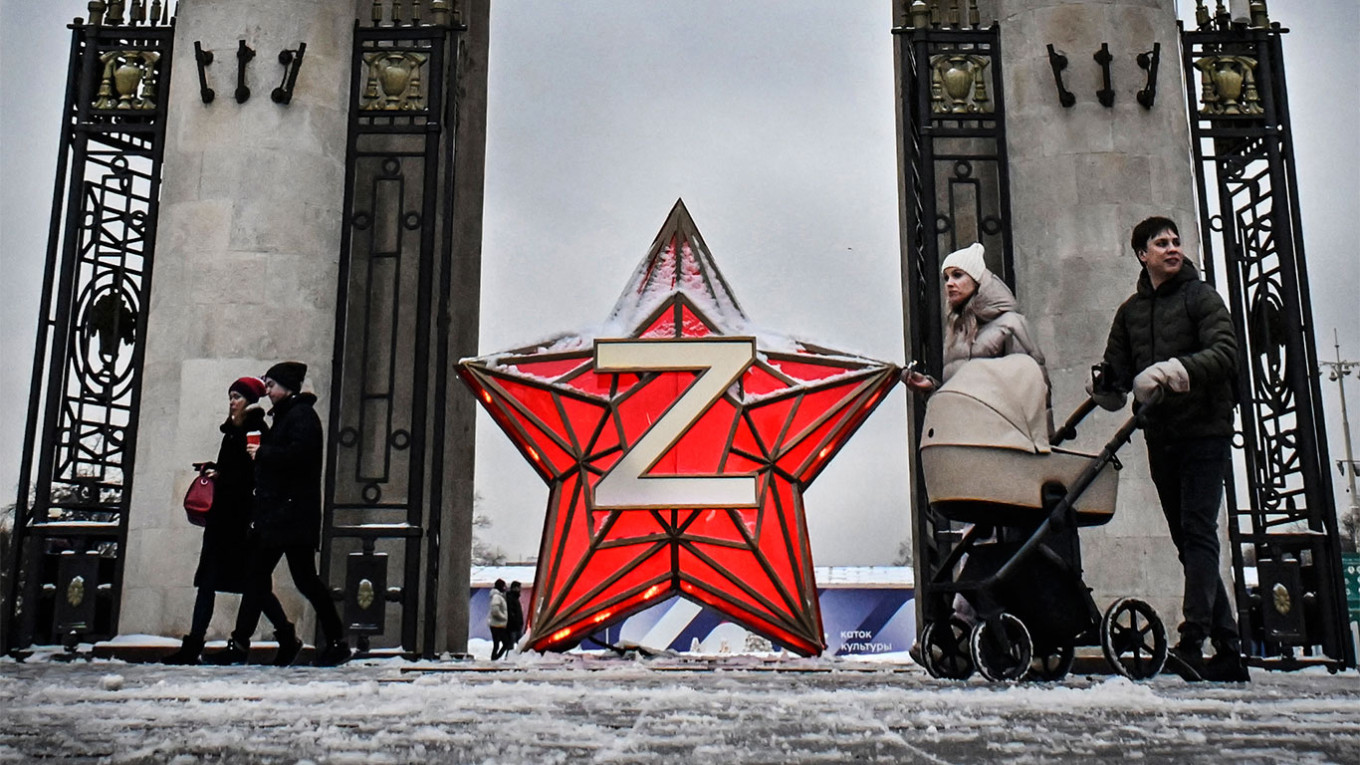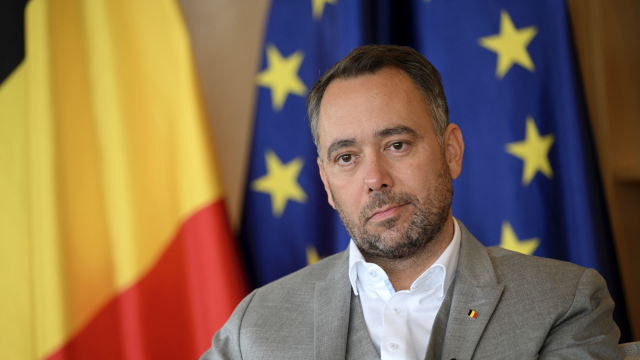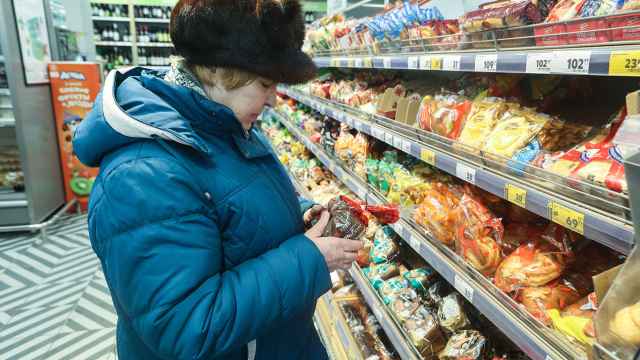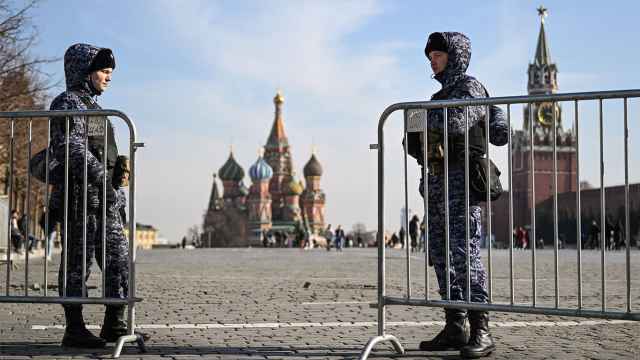While many analysts and observers expected the Russian economy to collapse under the weight of the Ukraine war and a flood of Western sanctions, the country has actually appeared surprisingly resilient through 2022.
The head of Russia’s Central Bank said in December that Russian GDP would contract just 3% in 2022, while President Vladimir Putin predicted a drop of 2.5%.
“The Russian economy has survived 2022,” economist Janis Kluge of the German Institute for International and Security Affairs (SWP) told The Moscow Times.
“But we cannot yet say that it survived the sanctions because they are still unfolding.”
Economists like Kluge warn that, behind the seemingly positive end-of-year statistics, there are numerous signs of darker times ahead.
And even the GDP numbers are not as rosy as they might appear.
The inclusion of sanctions-free January and February into GDP figures creates a misleading image of Russia’s real economic losses — and economists point out that Russia's war-related economic losses are significantly higher because — before the invasion — the economy was expected to grow about 3%.
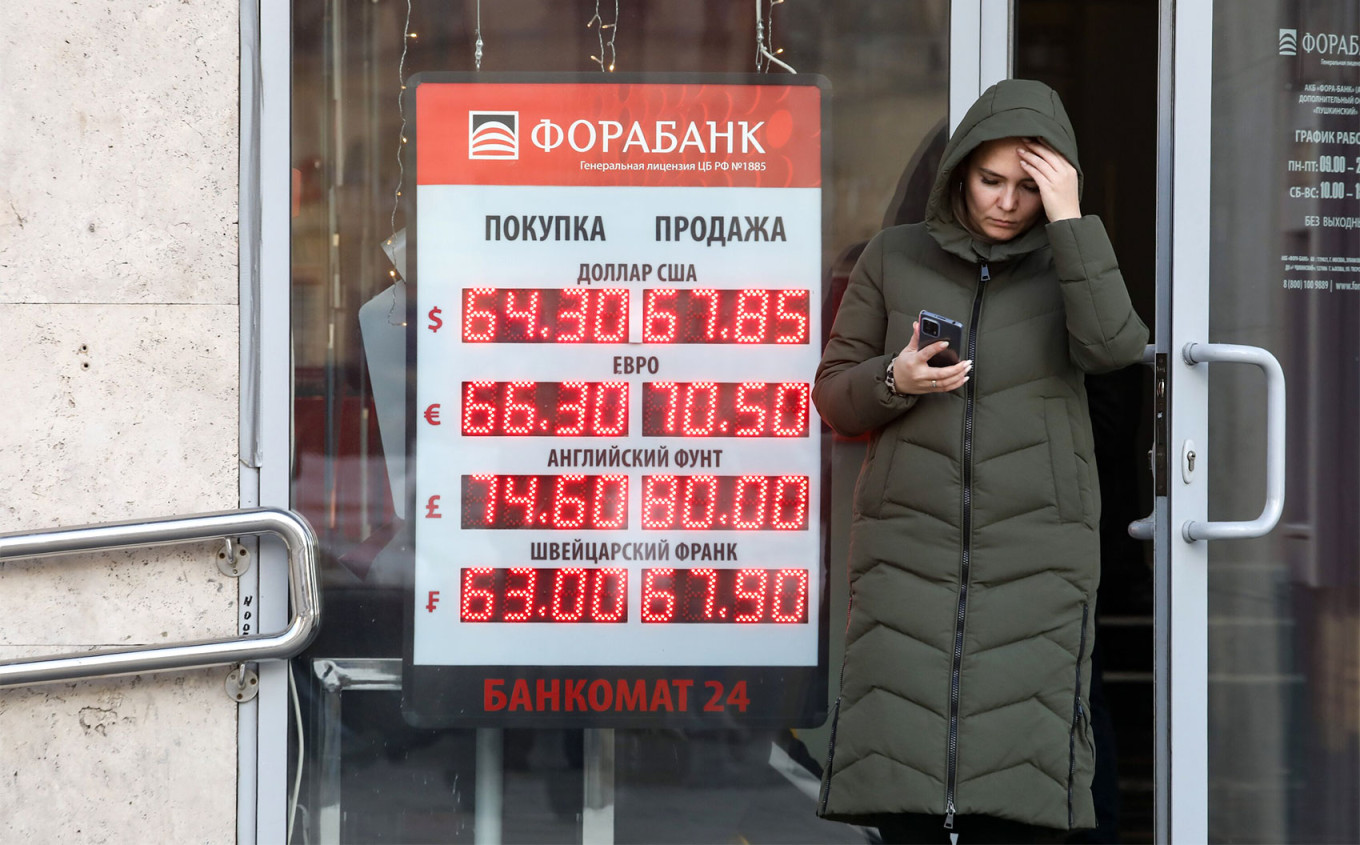
Even a contraction of 3% is a “colossal recession given that all world economies were expected to grow by 3% or 4% after the coronavirus pandemic,” economist Oleg Itskhoki said in a recent YouTube stream hosted by Russian journalist Yevgenia Albats.
According to Kluge, before the war, Russia’s economy was expected to grow up to 4% between February and December. Instead, it has declined 6% in that time.
This means Western sanctions “basically shrunk Russia’s economy by 10%,” he said.
In comparison, Russian GDP contracted 7.8% during the 2009 global economic crisis.
Despite the huge economic losses, experts disagree over how Russia managed to avoid an even larger economic contraction.
Many doomsday predictions for Russia’s economy were based on assumptions that the country would face a banking crisis, according to economists interviewed by media outlet Meduza. No banking crisis, however, emerged.
The Russian economy has also been buoyed by record energy expert revenues as prices for commodities, including oil and gas, shot up in the wake of the invasion.
Russia raked in about $158 billion in energy exports in the first six months of the invasion of Ukraine, according to the Finland-based Center for Research on Energy and Clean Air.
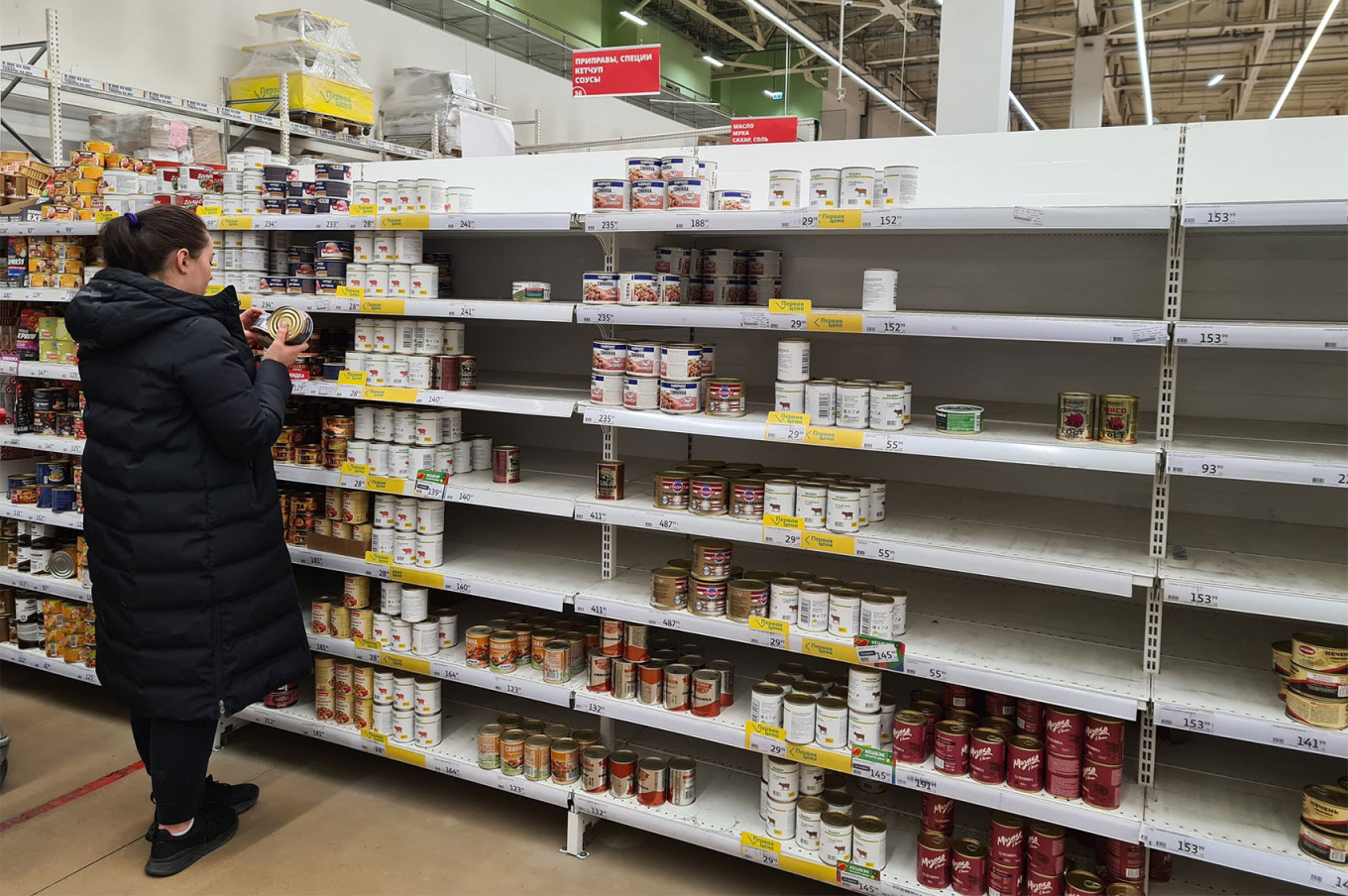
In March and April, Russia even set new records for oil and gas revenues.
But the West is increasingly focused on cutting this lifeline for Russia — and the European Union last month banned seaborne deliveries of Russian crude and imposed an oil price cap.
Russia’s maritime oil exports fell 22% in December after the introduction of the embargo, according to figures from commodities-data firm Kpler cited by The Wall Street Journal.
“Russia is heading into the new year without this big cushion, without the European market for gas exports, with much lower oil prices and lower oil export volumes,” said Kruge.
“This is going to be a big problem.”
Falling gas and oil exports are expected to weaken Russia’s currency — and the ruble has lost 13% against the U.S. dollar since the imposition of the price cap.
This trend is likely to continue, according to Kruge.
“The ruble will weaken and it will lead to even more inflation in Russia. This is also becoming a political problem,” said the SWP’s economist.
Annual inflation in Russia last year is expected to hit 12%.
Other consequences of the war, including the exodus of over 1,000 foreign companies and Western sanctions on exports to Russia, are also likely to have a more gradual impact.
“Many companies will lose access to Western technology, software and machinery,” said economist Kruge. “This is like a very slow erosion of productivity.”
Nevertheless, different sectors of the Russian economy have fared very differently, with some suffering particularly badly — while others thrived.
One of the worst performing has been car manufacturing, with Russian auto sales set to finish 2022 at 660,000 units — a 60% year-on-year decline.
On the other hand, 2022 was a successful year for agriculture, which is projected to record overall growth of at least 4%.
Russia’s agricultural sector in 2022 will “be the brightest spot of the rotting Russian economy,” said Andrey Sizov, managing director of SovEcon, an agricultural research firm focused on the Black Sea region.
The bumper result for Russian farmers was aided by near perfect weather conditions, but Sizov warned 2022 was likely an exception.
“Over three to five years we will see stagnation in the crop farming sector and possibly even a fall of production unless something changes,” Sizov told The Moscow Times.
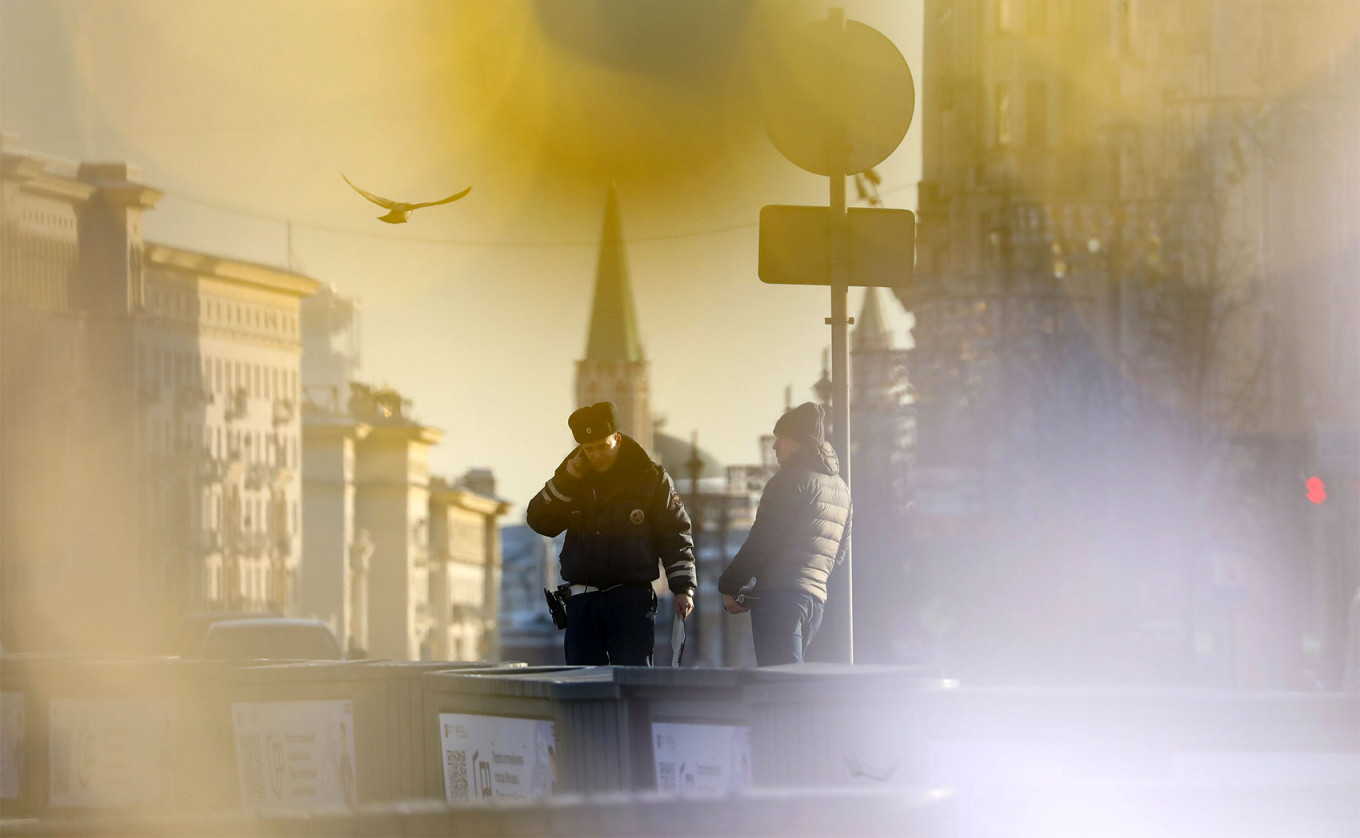
Such slow and steady decline in the coming years looks set to be replicated to varying extents all over the Russian economy.
Economist Itskhoki said that the Russian economy will shrink up to 5% in 2023, while others believe the contraction will be even bigger.
Alfa Bank’s chief economist, Natalia Orlova, has said that it will contract 6.5% on the back of falling consumer demand, lower investment and loss of export potential.
But political uncertainty and the unpredictability of military events in Ukraine mean that any predictions could change at a moment’s notice. .
“The economy is unlikely to be the main source of news in 2023,” Itskhoki said earlier this month.
“It’s difficult to imagine the war could last another 10 months and not bring about a cataclysm.”
A Message from The Moscow Times:
Dear readers,
We are facing unprecedented challenges. Russia's Prosecutor General's Office has designated The Moscow Times as an "undesirable" organization, criminalizing our work and putting our staff at risk of prosecution. This follows our earlier unjust labeling as a "foreign agent."
These actions are direct attempts to silence independent journalism in Russia. The authorities claim our work "discredits the decisions of the Russian leadership." We see things differently: we strive to provide accurate, unbiased reporting on Russia.
We, the journalists of The Moscow Times, refuse to be silenced. But to continue our work, we need your help.
Your support, no matter how small, makes a world of difference. If you can, please support us monthly starting from just $2. It's quick to set up, and every contribution makes a significant impact.
By supporting The Moscow Times, you're defending open, independent journalism in the face of repression. Thank you for standing with us.
Remind me later.



